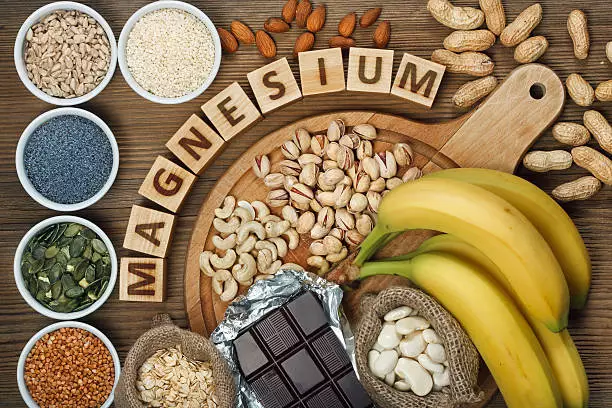
Magnesium glycinate is often mentioned in discussions about health and well-being, not least because of its many benefits for the human body. From its role in sleep quality to its impact on sporting performance, this ingredient deserves particular attention.
Magnesium glycinate is a form of magnesium that is linked to the amino acid glycine. It is known to be particularly well absorbed by the body compared with other forms of magnesium, such as oxidised magnesium or magnesium citrate.
Magnesium is an essential mineral involved in over 300 enzymatic reactions in the body. It plays a crucial role in maintaining musculoskeletal, nervous and cardiovascular functions. In short, magnesium is essential for the body to function properly.
Glycine is a non-essential but vital amino acid for various bodily functions, including promoting protein synthesis, improving cognitive function and inducing muscle relaxation.
The benefits of magnesium glycinate are many and varied. Among them, several stand out for their significant impact on daily well-being.
Magnesium glycinate is widely recognised for its positive effect on sleep quality. It helps regulate certain neurotransmitters, such as melatonin, which play a key role in the sleep-wake cycle. Individuals taking magnesium glycinate supplements often notice an improvement in the length and depth of their sleep.
Since magnesium is involved in cellular energy processes, it can help combat fatigue. Magnesium deficiency can lead to a feeling of chronic exhaustion. Supplementation with magnesium glycinate helps to restore adequate levels of magnesium in the body and reduce the feeling of fatigue.
Another critical aspect of magnesium glycinate is its contribution to muscle function and sports performance.
Magnesium acts as a natural muscle relaxant, helping to prevent and relieve muscle cramps. This is particularly useful for athletes and those with intense physical needs.
For sportspeople, magnesium glycinate also helps to improve performance because it supports mitochondrial energy production and reduces recovery time after intense physical effort.
Magnesium glycinate also has interesting cosmetic applications.
As a cosmetic ingredient, it helps to improve skin health. Thanks to its anti-inflammatory properties, it can soothe skin irritations, rehydrate dry skin and promote a youthful, radiant appearance.
It is essential to understand how to use magnesium glycinate effectively in order to reap all its benefits without upsetting the body’s balance.
The recommended daily dose of magnesium varies according to age, sex and level of physical activity. For adults, a typical dose of magnesium ranges from 310 mg to 420 mg per day. However, since it is better absorbed, a slightly lower dose may be sufficient to meet daily requirements.
Although it is generally well tolerated, excessive consumption can cause side effects such as diarrhoea and stomach upsets. It is always prudent to consult a healthcare professional before starting any new supplementation.
There are several types of magnesium on the market, each with its own bioavailability and usefulness. How does magnesium glycinate compare to them?
Magnesium citrate is also very popular and well absorbed. However, it has a more pronounced laxative effect, which may not be suitable for everyone.
Cheaper and more commonly available, oxidised magnesium comes with a much lower bioavailability. This means that a smaller amount of magnesium is actually absorbed by your body.
With so many options available on the market, how do you choose the right magnesium glycinate product? Here are a few criteria to consider:
Incorporating magnesium glycinate into your daily routine can bring a multitude of benefits for your overall health, your sporting performance and even your appearance.
